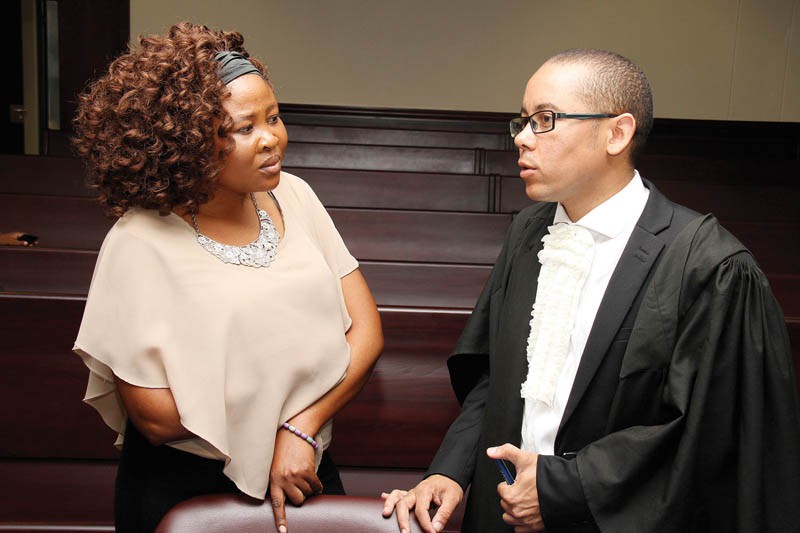Court slashes P1,2m claim
Mpho Mokwape | Monday February 9, 2015 16:10


Speaking to The Monitor after the judgement on Friday, Tumisang Dow said the amount was so shockingly low, especially in today’s economy where prices for everything have skyrocketed.
Dow said even though he fully agreed with the judges on their solid reasons in their judgement, he still felt they were too harsh and inconsiderate when dealing with the figures.
However, he added that they respect the decisions of the court.
“We expected something between P600, 000 and P700, 000 if not more, but now the court has decided what they deem appropriate. Even the calculated 10 percent interest is nothing to write home about. It still won’t make any difference,” he said.
Ramatlapeng was awarded P1.2 million compensation in 2012 by Justice Lot Moroka of Lobatse High Court, being the amount demanded as compensation for among other things, pain, suffering and future medical expenses plus 10 percent interest.
She had sued for among other things P400, 000 for pain and suffering, P700, 000 for permanent injury, future medical expenses for P100.000 making a total of P1.2 million.
However government appealed the judgement arguing the amount was too excessive and was on Friday granted their wishes as the CoA reduced the amount to only P350, 000 with 10 percent interest per annum from the date of judgement.
During judgement delivered on Thursday, Lord Alistair Abernethy said one of the claims meant for future medical expenses was hard to assess, as there was no evidence, which lead to a precise assessment.
Consequently, he slashed the cost of future medical expenses from P100, 000 to P50, 000. The CoA also awarded Ramatlapeng P175, 000 for the general damages. The CoA refused to entertain the P700, 000 awarded by the High Court for permanent injury, disfigurement and loss of earning, reducing the claim to P125, 000.
The state will still shoulder the costs of the case as previously ruled by the lower court.
